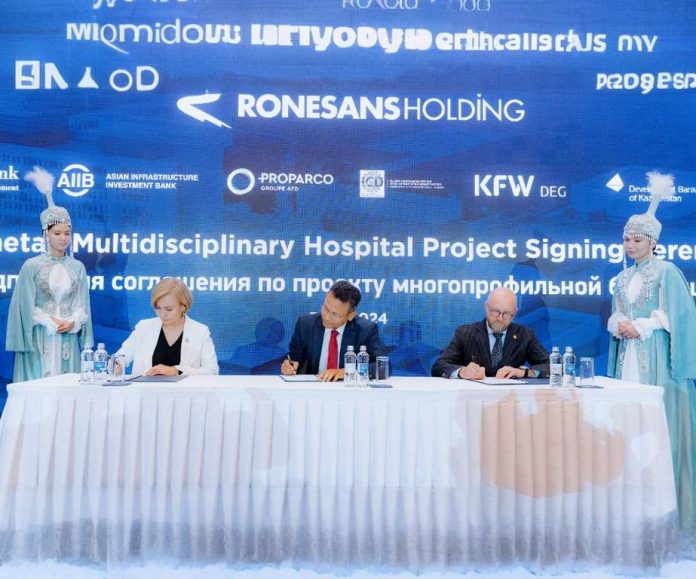- ICD is investing EUR 40 million for the construction and operation of a 630-bed multidisciplinary hospital in the city of Kokshetau, Kazakhstan.
- The total financing package is Euro 365 mln which is co-financed by the EBRD, AIIB, DEG, Proparco, and DBK.
- The Project will be developed by a Rönesans Holding subsidiary.
KAZAKHSTAN: The Islamic Corporation for the Development of the Private Sector (ICD) has signed a EUR 40 million Public Private Partnership (PPP) agreement to co-finance the Kokshetau Hospital Project in Kazakhstan. This Project will be ICD’s first financing under the PPP scheme in Kazakstan. The project will be also the first PPP in the healthcare sector of Kazakhstan and Central Asia with a greenfield development of a 110,000 m2 facility, which will provide services to more than 730,000 people living in the city of Kokshetau and the wider region of Akmola. Under the PPP agreement, the private partner will maintain the facility and operate a 24-hour hospital information management system (HIMS), setting a digital benchmark for Kazakhstan’s healthcare sector. Medical services will be provided by Turar Healthcare, a state-owned, non-profit operator.
The project will be co-financed for a total amount of up to €365 million provided by the European Bank for Reconstruction and Development (EBRD), the Asian Infrastructure Investment Bank (AIIB), the German Investment Corporation (DEG), the Islamic Corporation for the Development of the Private Sector (ICD), Proparco, a subsidiary of Agence Française de Développement and the Development Bank of Kazakhstan (DBK).
The new hospital will seek to receive a “Silver” rating under the Leadership in Energy and Environmental Design (LEED) green-building certification program, which recognizes best-in-class building strategies and practices. It will also aim to obtain an EDGE certification for water and energy savings.

